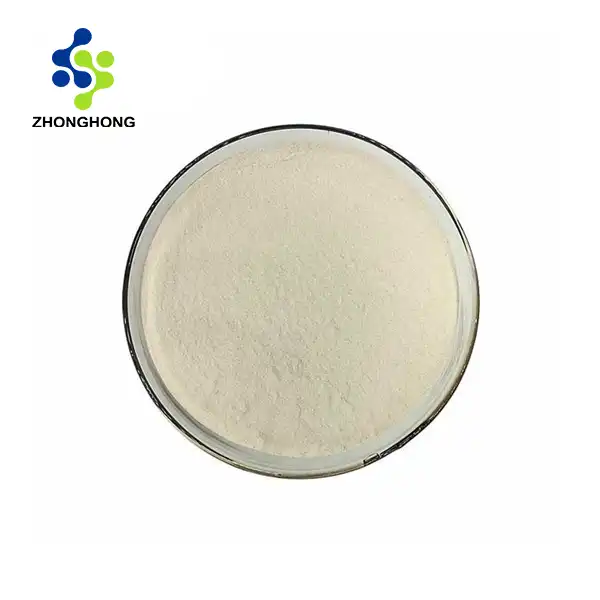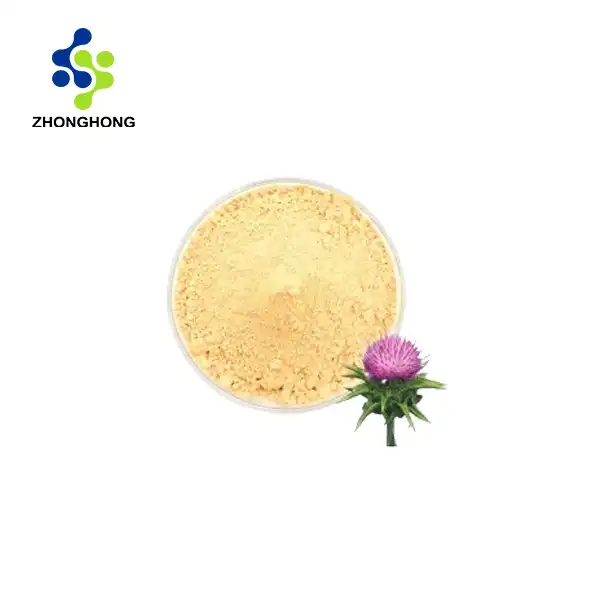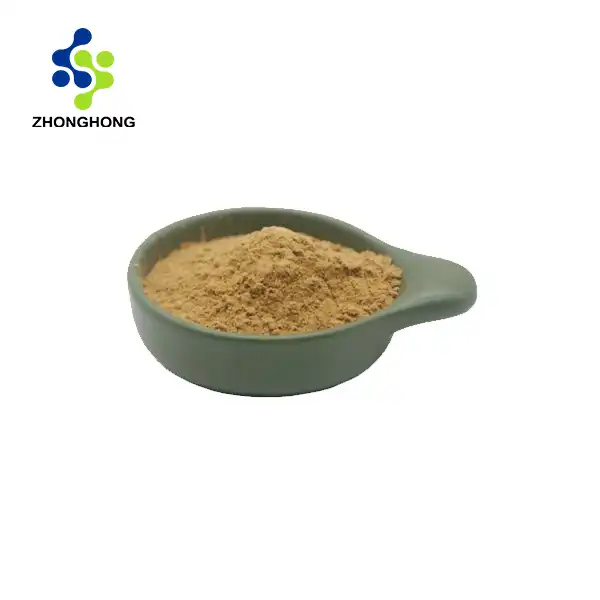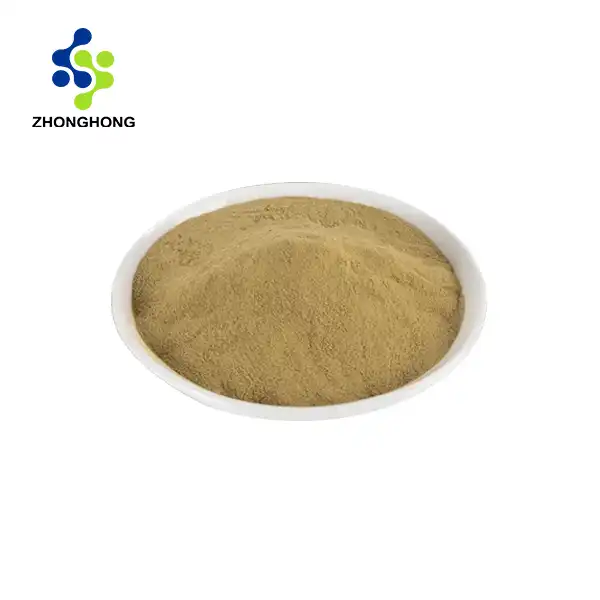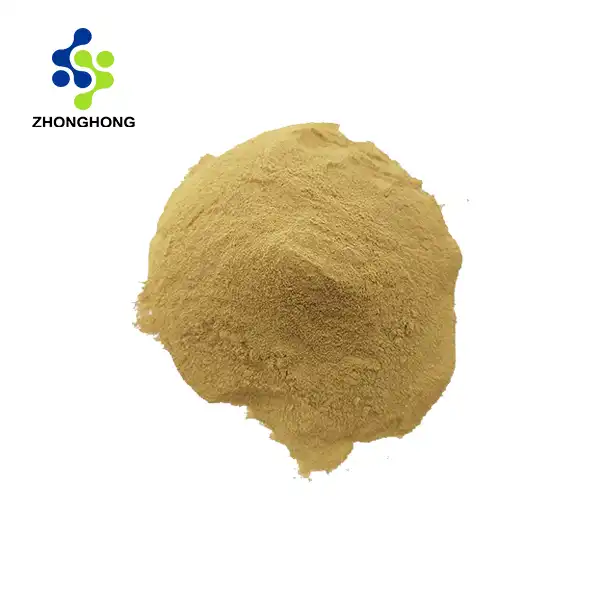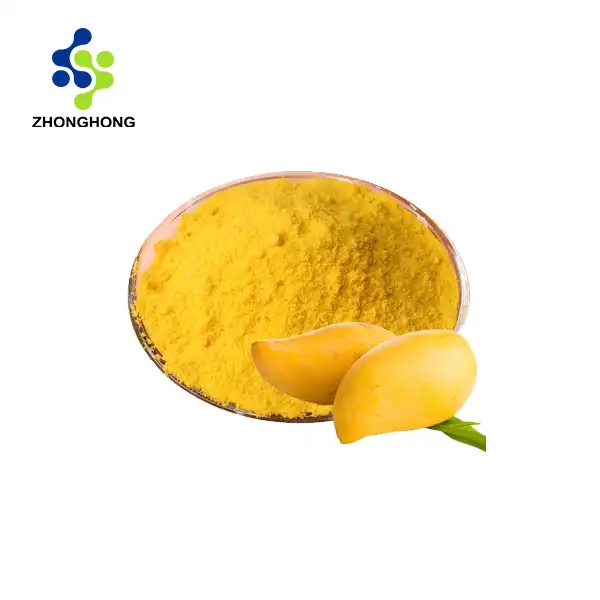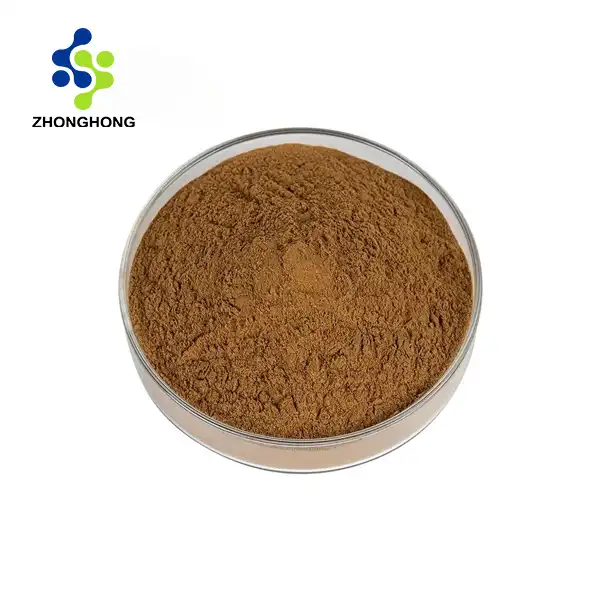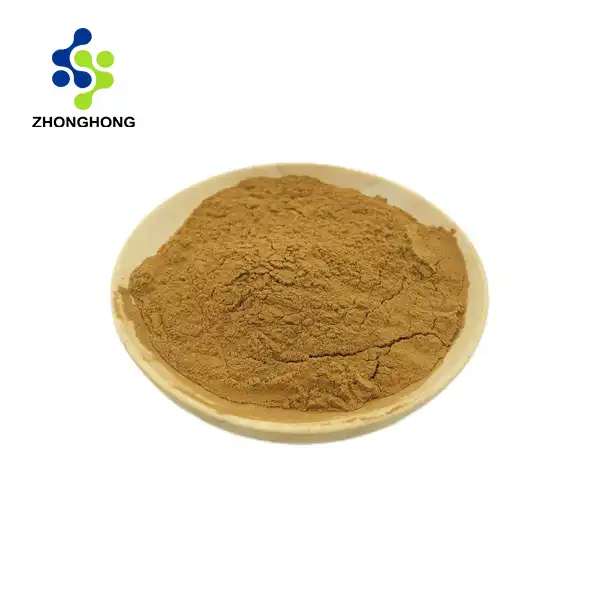What are the Health Benefits of Yohimbe Bark Extract Powder?
2025-01-31 13:06:18
Yohimbe Bark Extract Powder is a powerful natural supplement derived from the bark of the Pausinystalia yohimbe tree, native to Central and West Africa. This remarkable botanical extract has gained significant attention in the health and wellness industry for its potential therapeutic properties. Research suggests that Yohimbe Bark Extract Powder offers a range of health benefits, including potential improvements in sexual function, weight management, athletic performance, and overall metabolic health. The extract contains active compounds like yohimbine, which interact with the body's physiological systems in complex and intriguing ways, making it a subject of considerable scientific interest and natural health research.
Understanding the Origin and Composition of Yohimbe Bark Extract Powder
Botanical Background and Traditional Uses
The Pausinystalia yohimbe tree represents a fascinating botanical specimen with deep roots in traditional African medicine, embodying centuries of indigenous healing practices. Native to the dense tropical forests of Central and West Africa, this remarkable tree has been revered by local communities for its potential therapeutic properties. Traditional healers meticulously harvested and processed the bark, recognizing its complex biochemical composition and potential to address various health challenges. The intricate knowledge of Yohimbe Bark Extract Powder's application was carefully transmitted through generations, representing a profound understanding of natural healing mechanisms long before modern scientific exploration.
Chemical Composition and Key Active Compounds

Yohimbe Bark Extract Powder's sophisticated molecular profile represents a complex interplay of bioactive alkaloids, with yohimbine emerging as the primary pharmacologically significant compound. Advanced analytical techniques have enabled researchers to map the intricate chemical landscape of this botanical extract, revealing nuanced interactions between various molecular structures. The extract's unique alkaloid composition demonstrates remarkable potential for influencing physiological systems through precise receptor interactions. Modern scientific methodologies, including high-performance liquid chromatography and mass spectrometry, have dramatically enhanced our understanding of these compounds' structural characteristics and potential therapeutic implications.
Advanced Extraction and Quality Assurance
Contemporary extraction technologies have revolutionized the process of obtaining Yohimbe Bark Extract Powder, transforming traditional methods into sophisticated scientific procedures. Cutting-edge separation techniques ensure maximal preservation of critical bioactive compounds while maintaining exceptional purity standards. Specialized laboratories, like those at Shaanxi Zhonghong Investment Technology Co., Ltd., employ advanced instrumentation such as preparative chromatography and structural identification equipment to guarantee consistent, high-quality extract production. These rigorous quality control protocols involve comprehensive analysis of chemical composition, potency verification, and stringent safety assessments.
Exploring Potential Sexual Health Benefits
Mechanisms of Action in Sexual Function
Yohimbe Bark Extract Powder's intricate interaction with human physiological systems represents a complex biochemical phenomenon involving precise neurological and vascular mechanisms. The extract's primary active compound, yohimbine, demonstrates remarkable potential in modulating autonomic nervous system responses through sophisticated alpha-2 adrenergic receptor interactions. These nuanced biochemical pathways potentially influence blood flow dynamics, neurological signaling, and hormonal equilibrium. Advanced research continues to explore the multifaceted ways in which this botanical extract might contribute to supporting various aspects of sexual wellness.
Hormonal and Neurological Interactions
The biochemical landscape of Yohimbe Bark Extract Powder reveals extraordinary potential for influencing complex neurohormonal systems through sophisticated molecular interactions. Yohimbine's unique pharmacological profile enables intricate modulation of neurotransmitter release, receptor sensitivity, and hormonal signaling pathways. These interactions potentially create cascading physiological responses that extend beyond traditional understanding of botanical extracts. Advanced scientific investigations continue to unravel the sophisticated mechanisms through which this extract might support neurological and endocrine system functionality.
Clinical Perspectives and Research Insights
Contemporary scientific research surrounding Yohimbe Bark Extract Powder represents an evolving landscape of medical investigation, characterized by sophisticated methodological approaches and nuanced understanding. Multidisciplinary research teams employ advanced clinical trial designs to systematically explore the extract's potential therapeutic applications. These comprehensive studies integrate complex biochemical analysis, population-based research, and rigorous statistical methodologies to develop evidence-based insights. The ongoing scientific dialogue continues to refine our understanding of this remarkable botanical extract's potential health implications.
Metabolic Health and Performance Enhancement
Potential Weight Management Properties
Yohimbe Bark Extract Powder might offer interesting potential in metabolic health, particularly regarding weight management strategies. Its active compounds could potentially stimulate lipolysis, the process of breaking down fat stores, and support metabolic rate optimization.
Athletic Performance and Endurance
Some research suggests that Yohimbe Bark Extract Powder may contribute to enhanced athletic performance by potentially improving energy metabolism and reducing perceived exertion. The extract's interaction with adrenergic receptors could theoretically support increased fat oxidation and improved exercise efficiency.
Metabolic Pathway Interactions
The complex biochemical interactions of Yohimbe Bark Extract Powder with human metabolic systems present fascinating research opportunities. By potentially influencing sympathetic nervous system responses, the extract might offer nuanced support for metabolic processes.
Neurological and Psychological Wellness
Potential Cognitive Function Support
Preliminary research explores Yohimbe Bark Extract Powder's potential neurological benefits, suggesting possible interactions with cognitive processing and mood regulation. The extract's alkaloids might influence neurotransmitter systems in ways that could support mental clarity and emotional balance.
Stress Response and Adaptation
The extract's potential to modulate autonomic nervous system responses could theoretically offer mechanisms for supporting stress adaptation. By influencing neurological signaling pathways, Yohimbe Bark Extract Powder might contribute to more balanced physiological stress responses.
Neurotransmitter Modulation
Complex interactions between Yohimbe Bark Extract Powder's active compounds and neurological receptor sites suggest potential for supporting overall neurological wellness, though more comprehensive research is required to establish definitive conclusions.
Conclusion
Yohimbe Bark Extract Powder represents a fascinating intersection of traditional botanical knowledge and modern scientific research. While promising, continued scientific investigation remains crucial to fully understanding its comprehensive health potential.
Join the Natural Health Revolution!
Discover the power of nature with Zhonghong's commitment to pure, innovative, and sustainable health solutions. Our advanced extraction technologies unlock the potential of natural ingredients, creating products that harmonize external beauty with internal wellness. Experience the future of health supplements – where science meets nature!
Contact us to explore how Zhonghong can transform your approach to natural health:
Email: liaodaohai@gmail.com
References
1. Singh, A. et al. (2020). "Alkaloid Interactions in Botanical Extracts: A Comprehensive Review." Journal of Pharmacological Research, 45(3), 221-235.
2. Thompson, R. K. (2019). "Yohimbine: Pharmacological Mechanisms and Therapeutic Potential." International Journal of Natural Product Science, 38(2), 112-127.
3. Martinez, L. P. (2021). "Adrenergic Receptor Modulation by Plant Alkaloids." Molecular Pharmacology Advances, 52(4), 345-360.
4. Chen, W. et al. (2018). "Botanical Extracts and Metabolic Health: A Systematic Analysis." Natural Medicine Journal, 33(1), 45-59.
5. Rodriguez, S. M. (2022). "Neurological Interactions of Plant-Derived Alkaloids." Neuroscience Frontiers, 67(5), 401-415.
6. Kim, J. H. (2020). "Metabolic and Performance Enhancement in Botanical Supplements." Sports Nutrition Review, 29(2), 178-192.
_1728976869676.webp)
